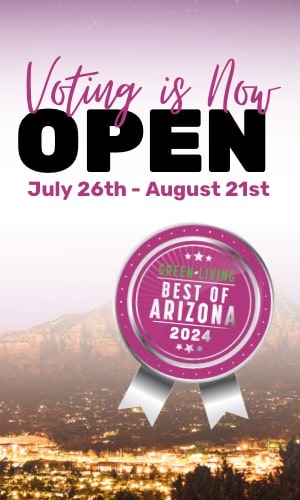During my first couple years in college people would always ask the same question: “What’s your major?”
Every single time. It was the question that all people would fall back on when meeting someone. I did it, too. And I know this question is asked constantly in colleges all over the world.
However, someone’s major can actually tell you a lot about them. Not that all stereotypes ring true, but sometimes majors can give you an idea of what a person is interested in and what they want to do in their future (with exceptions, of course).
After two years of asking and answering the same question, the question changed. All around me I started hearing: “What’s your Enneagram type?”
People switched from wanting to know each other’s majors to wanting to know each other’s personality types. A person’s type was communicating more of themselves than their own majors ever could.
Before this time, I had not heard of the enneagram personality model. But in the last few years, there has been a certain reawakening towards this system. Most people now know what the Enneagram is, and most people know what personality type they fall under.
If you’re still unfamiliar with the personality type model, Enneagram expert, writer, and social media personality, Christina Wilcox, was kind enough to break the system down for us a bit more.
According to Wilcox, “the Enneagram is known to be the oldest personality typing system to exist. The roots of it are pretty unknown, but it is believed to have monastic roots (…). It was originally used in the context of spiritual direction intended for those wanting to go on a journey of self-discovery (…). The basis of the system consists of nine personality types, and each type has a core desire and core fear that motivates their behavior and helps guide their life. It affects how they see the world and how they interact with others.”

So, do not confuse the Enneagram with just another online personality quiz that tells you which flavor of soda you are. It is an extremely helpful tool that can help you fully know and understand who you are.
“Other personality systems are very straightforward. They say ‘this is who you are and this is what you do,’ whereas the Enneagram says ‘this is why you do what you do.’ It helps you develop self-awareness and maps out a path for your growth.”
The Enneagram is trying to tell us what motivates us, what drives us, and what stresses us, even. It is not the what of who we are, but rather the how and the why. It is a model that can help us grow and become better versions of ourselves by first helping us grow in self awareness.
So, what are the dangers of not truly knowing ourselves?
“If you do not truly know yourself, you have a false sense of reality,” says Wilcox. “If you do not understand how you see the world, how relationships and friendships affect you, and what motivates you in life, I think life can be shallow and purposeless.”
Purposeless is a harsh word. But it could not be closer to the truth. A lack of self-knowledge can make us blind and even disoriented; kind of like a shipwreck survivor floating through the ocean on a lifeboat without knowledge of where the nearest piece of land is. The Enneagram could be the satellite GPS that can guide us to a safe place.
The Enneagram is not trying to lock you in a steel box either. Of course, by being a personality model it is a type of categorization. However, as Wilcox also notes, every single person is different. No single person labeled as a type 5 will be the same.
“I am reminded of what Ian Morgan Cron says in his book The Road Back to You: ‘Twos are type blue.’ Just think of how many different shades of blue there are!”
With this, however, it is really important that we have a healthy relationship with the Enneagram. We must use it as a tool for growth, and not as a way to confine ourselves or others. While this can be difficult, it’s necessary. And we cannot just blame what we do wrong on our Enneagram type.
A question we must ask ourselves to stay on the right track, according to Wilcox, is “Am I using this tool as a way to justify my behavior or am I using this tool to grow?”
If we are having a hard time answering that question, then maybe it is time we reevaluate how we are using the Enneagram model in our lives.
As Wilcox also notes, the Enneagram’s explosion on social media has really caused it to become westernized and watered down from the tool it was originally intended to be. And there needs to be a balance between the fun of the Enneagram and its sacredness and specialness.
Additionally, there is a danger to its popularity, for many Enneagram sources on the web and on social media platforms reaffirm harmful personality type stereotypes. The Enneagram model is a part of pop culture, so it is important that we do not fill our head with stereotypical ideas that discredit the effective truths communicated by it. We must make sure we are not typing other people, or assuming things about someone based on their enneagram type.
As we have seen, the Enneagram can really help us understand ourselves better and grow in our self-awareness. However, it can also help improve our relationships with other people.
As Wilcox notes, knowing our loved one’s Enneagram types are really helpful in knowing how to best love them. The model opens up a different perspective of understanding someone’s motivations behind certain behaviors. It helps us refrain from assuming answers to questions regarding their words and actions. By knowing someone’s personality type we can learn to empathize with their coping mechanisms rather than reject them.
Through an analysis of the other personality types, you can grow in empathy and understanding which may benefit your relationships. There is always more than meets the eye (or the ear), and the Enneagram makes this clear.
The Enneagram’s origins seem highly connected to spirituality, and have historically been used and communicated as a spiritual tool at times. But how can knowing our type help us grow in our relationship with God?
“You have to be careful with every tool, especially if you are a believer. If you do not understand yourself…you are not going to understand how you view God (…). I believe that God created us to be self-aware. When we are self-aware we are humble, we repent, we treat others with kindness and love, we are peacemakers…”
The passion for this message is evident in her voice. As we continue talking about the spiritual heart of the Enneagram, I start thinking about how it has helped me in my own spiritual journey.
There is no doubt in the transformative power of the Enneagram. It has changed my life, and it has also changed Wilcox’s life.
“Once you [truly] know about the Enneagram, there is no small change. You either take it seriously and it transforms everything or you send memes back and forth with your friends and that’s it.”
The personality model has influenced her life so much that she wrote a book on it, called Take Care of your Type: an Enneagram Guide to Self-Care, that comes out on December 15th.
The book is a practical guide on how to move forward once you are aware of your Enneagram personality type, which Wilcox felt was something that was missing in the industry. She emphasizes that her heart behind the book was to provide validating and honest advice to every person learning about the Enneagram without putting them in a box.
“Everything I have always wanted to say to every Enneagram type is in this book,” she says.
So, if you are seeking to learn more about the personality model and how you can apply it in your own life in a practical way, this is a book you will want to read.
“Take the Enneagram [model] seriously, but also do not take it too seriously. Bring it back to making it very personal, and even private and sacred in a way, so you can actually fully experience the growth and transformation that comes with it. But do not let everything you read, do, and see within yourself and others be through the lens of the Enneagram.”
We must not forget that many things can come into factor when referring to a person, not just their personality type. We are all different and complex individuals, after all. And while I’m not completely sure if people are still asking for each other’s Enneagram type at my university, I hope they remember that while an Enneagram can say a lot about us, it does not say everything.
For more information on Christina Wilcox, visit www.christinaswilcox.com.
Keep up with all of Green Living’s original content online and on social media.







